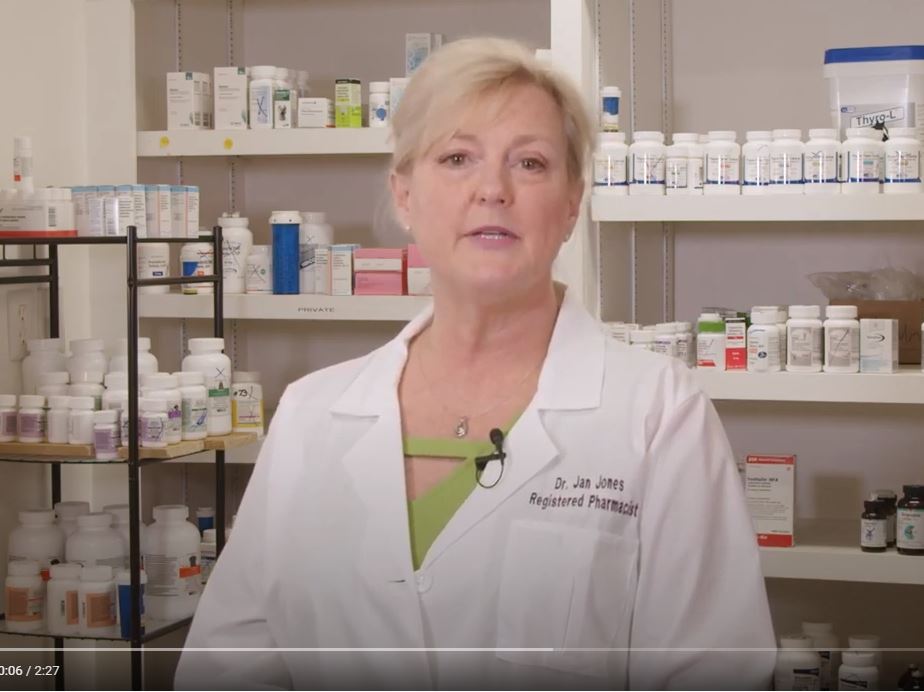National Poison Prevention Week: Cats
What You Need To Know about Cats, Medications, and Toxicity
While many drugs and medications are safe for both human and dog use, the same does not apply to CATS.. Unless specifically indicated, cats should never be given people or dog medications or supplements. According to the Pet Poison Hotline website, close to 50% of the calls they receive regarding toxic ingestions in pets involve human medications.
I hope you find this over view of the Do’s and Don’t’s of Medicating your Cat helpful.
Why You Should Never Medicate your Cat Without Consulting Your Veterinarian:
Cats Are Especially Sensitive to Drugs and Medications
A cat’s sensitivity to drugs and medications occurs due to a deficiency in a liver enzyme that aids in the metabolism of many drugs and medications. The enzyme deficiency diminishes their ability to not only effectively break down the drug or medication for use, but also to eliminate it from their body.
The Margins Between Underdosing and Toxicity Are Small
Most human drugs or medications are dosed according to the human patient’s weight, which increases the importance of knowing the exact weight of the cat. It is a small margin of safety when determining the correct drug or medication dosage for a cat.
- If weight is estimated, it can lead to either under- or over-dosing the animal
- A therapeutic dose is cat-specific and will supply the veterinarian-diagnosed needs of the animal
- A toxic dose is one that produces toxic drug levels in the animal’s body by either:
- An overdose, or
- The animal’s inability to eliminate the drug or medication from its body.
Symptoms of toxicity may include vomiting, seizures, lethargy, lack of appetite, and coma. Seek immediate help from your veterinarian or call the Pet Poison Hotline at 800-213-6680 if you suspect your cat is showing signs of toxicity.
Many Factors Determine The Correct Dosage
In order to determine the drug dosage required to appropriately treat a cat, you also must take into consideration other animal-specific information, for example:
- Age
- Drug toxicity is more common in kittens and very old cats
- Older cats may be more susceptible to organ failure related to an inability to break down and excrete the drug
- Even when dosage is based upon weight, kittens may require a lower dose due to immature kidneys
- Health of the animal
- Animals with health problems such as advanced liver or kidney disease may have increased difficulty with drug excretion, which could lead to organ failure
- Needs of the animal
- Drug toxicity can also occur in animals that are given the drug for too long a length of time.
Cats Hide Signs of Drug Toxicity
Cats are known for hiding their ailments, which makes signs of drug toxicity difficult to recognize. By the time the problem is identified, permanent damage may have already occurred. Drug toxicity is known to affect a cat in the following ways:
- Hearing Damage
- Liver Damage
- Kidney Damage
- Bone marrow Damage
- Gastrointestinal system Damage
- Nervous system Damage
My advice is to Never Medicate Your Own Cat Without Asking Your Veterinarian.
While some human medicines are used to treat cats, the safety of their use depends on the animal, its age, and its health status. It is imperative that cat owners understand the importance of talking with their veterinarian about the health and treatment needs of their pet.
The Top 10 most common human medications that can result in poisoning in cats:
10. NSAIDS or Non-steroidal anti-inflammatory drugs
NSAIDs, are commonly used for many types of pain and sometimes fever-reduction in humans.
Examples of NSAIDs that are formulated for humans that can be extremely dangerous for cats:
aspirin, ibuprofen (Motrin, Advil), and naproxen (Aleve
Giving a cat these drugs can result in ulcers of the stomach and intestines as well as kidney failure.
9. Tylenol or Acetominophen
Acetaminophen is extremely toxic to cats at even low doses, potentially causing liver failure and damage to red blood cells. Veterinarians do not use this drug in cats.
It's important to be aware that acetaminophen is also present in a huge variety of other over-the-counter medications such as Excedrin and many cold remedies.
Prescription, over-the-counter, herbal, canine, and children's medications as well as natural and essential oil-containing products may all be toxic to cats. Check with your veterinarian.
8. Pseudoephedrine
This medication is found in decongestant medications used and is present in a large number of cold and flu formulations for people. Pseudoephedrine causes increased heart rate, agitation, increased blood pressure, and hyperthermia (high body temperature) in cats. A few of the products that contain this medication are Sudafed Congestion, Tylenol Cold, and Theraflu Flu.
7. Human Diabetic Medications
Glipizide and Glyburide, present in pills such as Glucotrol and Micronase can dangerously lower a cat's blood sugar if ingested, resulting in wobbliness, confusion, seizures, and death.
6. Antidepressants or Anti Anxiety Medications
Effexor is a human antidepressant that comes in a capsule. For an unknown reason, cats seem inclined to enjoy eating these. One capsule can be enough to result in severe toxicity in a cat, causing a high heart rate, agitation, aggression, sedation, seizures, and possibly death. Other antidepressants and antianxiety medications can have similar effects in cats.
5. Statins
These are drugs used to lower cholesterol in humans. If ingested by cats it can cause vomiting and diarrhea. Some common statins are Lipitor and Zocor.
If you believe your cat has eaten any type of human medication, call your veterinarian or the Pet Poison Hotline at 800-213-6680 immediately.
4. Blood Pressure Medications
Human medications used to control high blood pressure can cause problems in cats based on the family of drug that is ingested.
- ACE-inhibitors such as Zestril can cause low blood pressure and weakness in cats that eat them, but these effects are generally mild and resolve on their own in a healthy animal.
- Beta-blockers like Tenormin, on the other hand, can cause severe drops in blood pressure and a life-threateningly low heart rate in cats.
Regardless of the type of blood pressure medication ingested, call your veterinarian or the Pet Poison Hotline at 800-213-6680 to determine the best course of action.
3. Benzodiazepines or Anti Anxiety Medications
Valium, Klonopin, and Xanax are examples of benzodiazepines used in humans. This type of medication is sometimes used in cats, as well. However, benzodiazepines can cause serious liver failure in some cats, and it isn't always possible to predict which individuals will be affected in this way. You should never give any benzodiazepine to your cat without the direction of your veterinarian.
2. Birth Control Pills
Birth control pills and hormone replacement therapy medications for women can be toxic to cats at high enough doses. The estrogen, especially, in these products can result in bone marrow suppression with life-threatening consequences if enough is ingested.
If your cat eats any hormone medication, call your veterinarian or the Pet Poison Hotline at 800-213-6680 to find out what you should do. If it is at all possible, have the product packaging available when you call so the amount ingested can be calculated to determine whether your cat has received a potentially toxic dose.
- ADD or ADHD Medications
Many medications used to treat ADD and ADHD in people contain strong stimulants such as amphetamines or methylphenidate. These chemicals can cause stimulation of a cat's nervous system with the resultant signs of increased heart rate, breathing rate, and temperature, agitation, seizures, and death. Amphetamines are also present in some medications used for weight loss and narcolepsy in humans. Some of the medications that contain these substances are Ritalin, Adderall, and Dexedrine.
How Can You Protect Your Cat?
Being aware that human medications can have potentially devastating effects when eaten by a cat is the first step in protecting your feline friend. Inaddition, it is best to never try to medicate your cat without consulting your veterinarian. Next, follow these guidelines to provide further safety:
- Always keep all medications in a secure area that your cat can't access.
- Don't keep your medications in secondary containers that are easily tampered with such as plastic baggies.
- When you are taking your medication, use extreme care to ensure that you don't drop any pills or capsules on the floor. Consider making a habit of always opening your bottles while leaning over a sink or counter so it is more obvious to you when you have dropped one.
- When you have visitors, make sure they understand how toxic human medications are to cats. Ask them to keep any medications they have secured at all times.
- Keep your pet's prescribed medications in a different spot from your prescribed and over-the-counter medicines, so it will be less likely for you to mix them up when giving your cat her meds.
- Never, ever give a human medication to your cat without checking with your veterinarian first. Do not rely on the internet or friends or family members who may have used a particular medication in their cat before. Your cat's veterinarian is best suited to determine the risks of a particular medicine to your individual cat.
To your pet's good health,
Barry Miller DVM
Works Cited
Top 10 Human Medications Poisonous to Pets. (n.d.). Retrieved from PetPoisonHelpline.com: www.petpoisonhelpline.com/pet-owners/basics/top-10-human-medications-poisonous-to-pets






